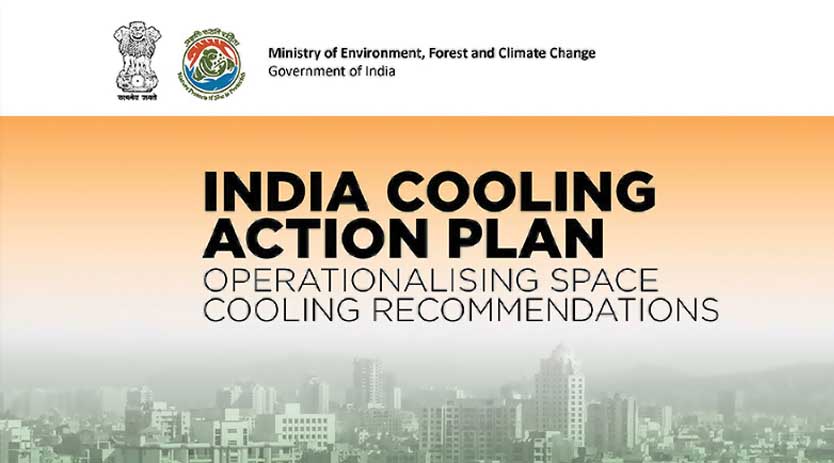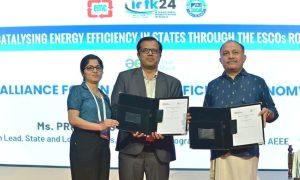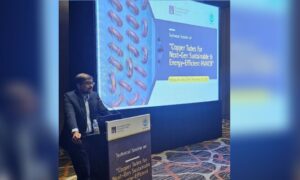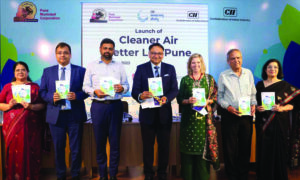Climate change is now the commitment amongst governments, think tanks, and even large corporations. There are numerous conferences, from the COPs to G20 to UNFCCC programs, striving to mitigate global climate change.
India is the first country with a cooling action plan based on energy efficiency and thermal comfort, said Union Minister for Environment, Forest and Climate Change Bhupendra Yadav. It has been just over three years since the launch of the ICAP. Programmes and initiatives are already underway to advance the Plan, despite a slowdown due to the Covid pandemic. AEEE supports the implementation of ICAP through multiple avenues: as part of the Implementation Steering Committee established by the Ozone Cell, as part of the India Cooling Coalition and directly through a multi- year programme to implement ICAP recommendations.
Cooling is also linked to human health and productivity. Linkages of cooling with Sustainable Development Goals (SDGs) are well acknowledged. ICAP’s high-level goals, which will have significant benefits seek to the reduction of cooling demand across sectors by 20–25 percent by 2037-38 to –
• reduction of refrigerant demand by 25–30 percent by 2037-38
• reduction of cooling energy requirements by 25–40 percent, by 2037–38
• training and certification of 100,000 service technicians by 2022–23, synergising with Skill India Mission
• recognising cooling and related areas as a focus area of research under the national science and technology programme.
The below-mentioned benefits would raise to society over the environmental benefits: (i) Thermal comfort for all – provision for cooling for EWS and LIG housing, (ii) Sustainable cooling – low GHG emissions related to cooling, (iii) Doubling Farmer’s Income – better cold chain infrastructure – the better value of products to farmers, less wastage of produce, (iv) Skilled workforce for better livelihoods and environmental protection, (v) Make in India – domestic manufacturing of air-conditioning and related cooling equipment, (vi) Robust R&D on alternative cooling technologies – to provide a push to innovation in the cooling sector.
The cross-sectoral nature of cooling and its use in the development of the economy makes provision for cooling an important developmental necessity. The development of ICAP has been a multi-stakeholder inclusive process encompassing different Government Ministries, Departments, Organisations, Industry and Industry Associations, Think tanks, and Academic and R&D institutions.
India currently has low access to cooling. Its economic recovery and progress, coupled with global warming trends, will drive an eight- time increase in the demand for cooling in the next two decades. ICAP has placed India on the international radar and garnered significant interest in supporting global momentum for creating National Cooling Action Plans (NCAP). The ICAP experience has been influential in guiding the ‘global’ NCAP Methodology developed by AEEE under the leadership of the UNEP and the UN Economic and Social Commission (UNESCAP) and supported by the Cool Coalition’s NCAP Working Group.
Key areas of ICAP
It includes sustainable urban development, greenhouse gas (GHG) net-zero pathways for cities or regions, low-climate impact mobility solutions, the transition to electric vehicles, and waste management. The following steps have been taken to implement the recommendation of various thematic areas of the ICAP:
• Regarding the reduction of cooling and energy demand in Space Cooling in the building sector, a list of action points has been finalised after mapping the recommendations of the India Cooling Action Plan with the ongoing government programmes/ schemes of the various Ministries.
• Towards promoting passive cooling in buildings, the Bureau of Energy Efficiency has brought out the Energy Conservation Building Code (ECBC) for all large commercial (non-residential) buildings and Eco-Niwas Samhita (ECBC-R) for residential buildings.
• Studies on promoting non- Ozone Depleting Substances (ODSs) and low Global Warming Potential based technologies in Cold Chain, Building sector and Public Procurement have been undertaken by creating reports.
• To promote indigenous development of low GWP refrigerants, the Department of Science and Technology, Government of India, has funded a research project to the CSIR- Indian Institute of Chemical Technology, Hyderabad.
• Indian Institute of Technology, Delhi, in collaboration with the Bureau of Indian Standards, has undertaken a simulation study for developing safety standards for flammable refrigerants in the Refrigeration and Air-conditioning sector.
• Up-skilling and certification of 43,450 Refrigeration and Air- conditioning (RAC) service technicians have been undertaken under the national skill qualification framework through the Ministry of Skill Development and Entrepreneurship (MSDE). In addition, 29,000 RAC service technicians are being trained as part of the implementation of Hydrochlorofluorocarbons (HCFCs) phase Management Plans under the Montreal Protocol.
Conclusively, India has taken ambitious targets in support of global environmental goals as evidenced in its Nationally Determined Contributions to combating Climate Change under the Paris Agreement, ratification of the Kigali Amendment to the Montreal Protocol for phase down of Hydrofluorocarbons. India has also raised the issue of excessive usage of the global carbon budget by developed countries that have led to global warming, their high levels of current emissions and their need to reach net zero much ahead of 2050.
Cookie Consent
We use cookies to personalize your experience. By continuing to visit this website you agree to our Terms & Conditions, Privacy Policy and Cookie Policy.















